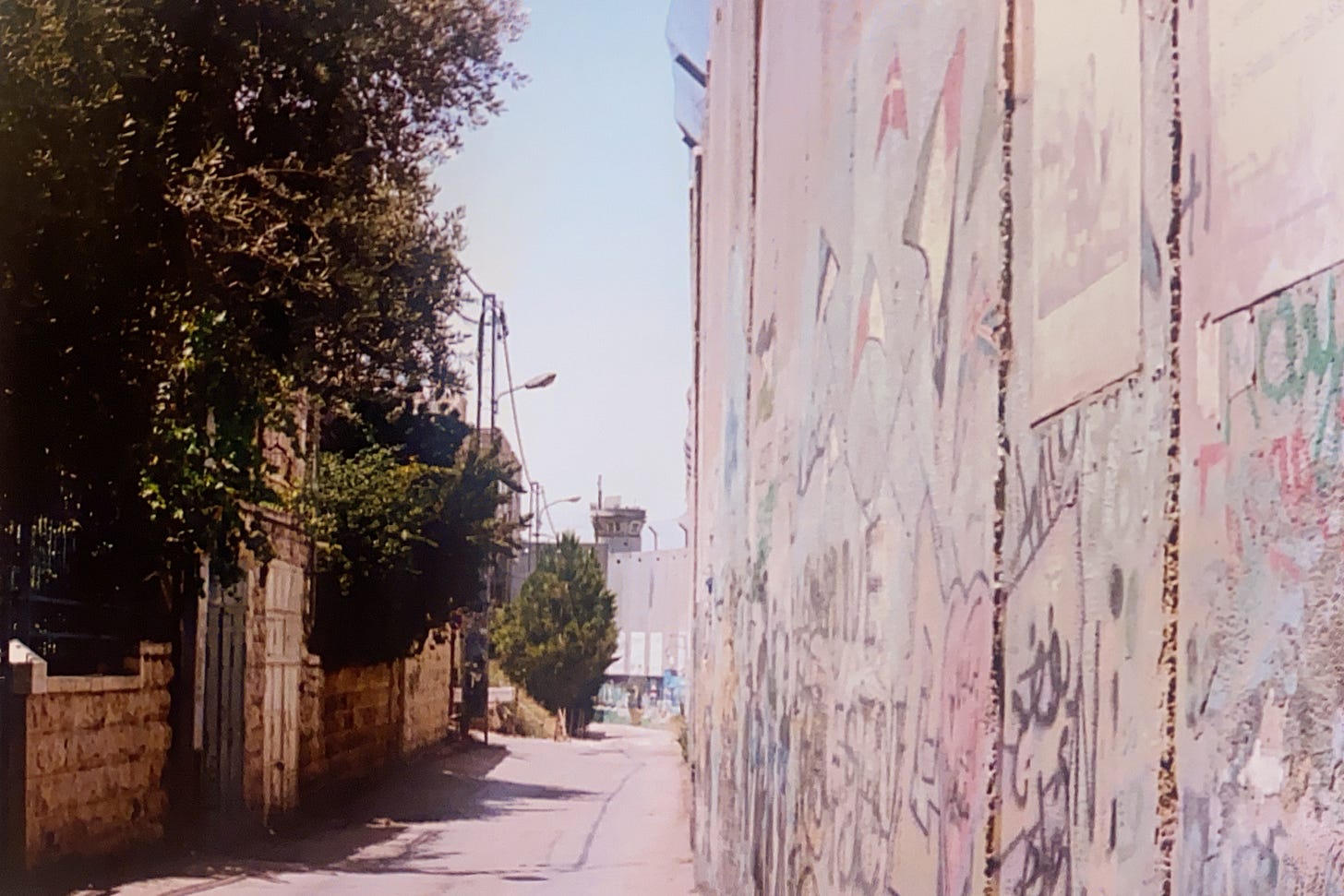Film from Jerusalem
I just picked up the first roll of film I had developed since January 2022, after my camera’s shutter broke on a very cold February date night at the Met.
Pro-tip for moving:
have a priest help you. Our friend Max helped me move into my new place one month ago, and after moving boxes up and down stairs, we finished with a small house blessing in my new wood-paneled room. One of the better moving experiences I have ever had.
To support this: a helpful thing to have on hand in your moving items are holy water and blessed salt, which this liturgical nerd keeps in her nightstand at all times.
Maternity Leave
I’m probably the only non-mother in the world who talks as much as I do about maternity leave. The National Catholic Register turned our interview from EWTN into an article.
You know when the prayers of the faithful at Mass on Sunday are just really cracked out? Like someone in the parish office was feeling every ounce of their English major that day?
Recent sample: “May the leaders of our world’s nations not ask for more than they need.” It’s the sort of “New York Times Headline Police Shooting Passive Voice” style of Mass intentions. What ever happened to naming names? “Smite the powerful and send the greedy away empty,” is how Evangelist Luke would write that.
Why—I wondered to myself one morning—are we praying for God to “prosper efforts to thwart drug cartels.” Thwart? Prosper? Efforts? How about: “When he shall be judged, let him be condemned: and let his prayer become sin. Let his days be few; and let another take his office” (Psalm 109). I mean, that’s the sort of prayer that makes you pay attention. The Psalmist is not a trifler.
Leader: Make us humble of heart,
Response: help us to serve one another out of reverence for Christ.
Leader: Purify our hearts of every evil desire
Response: make us intent on doing your will.
Leader: Open our hearts to the needs of all men
Response: fill us with brotherly love.
Now that’s a prayer.
"We must talk about poverty because people lose sight of it, can scarcely believe that it exists,” writes Dorothy in Poverty and Precarity, an editorial in the Catholic Worker newspaper that first appeared in 1952 and was reprinted in 1985.
As I was pulling The Good Dubet off of the bed in James’ guest bedroom to bring over to my guest bedroom for my guests, it occurred to me how silly I was being. There was already a comforter provided in the guest bedroom. But it was hotel-room ugly and I just bought The Good Duvet’s cover at Target for no good reason other than I had momentarily forgotten my student loans and it was lovely, and so I wanted my guests to have The Good Duvet with the lovely new cover and matching pillows.
When you are poor, it is just so obvious that the guests should have the best: the best towels, the best duvet, the best bed. I think it’s obvious when you’re not poor. But when you’re not poor, there are lots of extra nice things to go around. And when you’re poor, there is a clear hierarchy of the best towel, and the second best towel, and the simply okay towel. And the guest should enjoy the best. You realize that that’s what we keep the best around for, anyway: to give away.
“Voluntary poverty,” Peter Maurin would say, “Is the answer.” Through voluntary poverty we will have the means to help our neighbor. We cannot see our neighbor in need without stripping ourselves. It is the only way we have of showing our love.
—Poverty and Precarity, Dorothy Day








